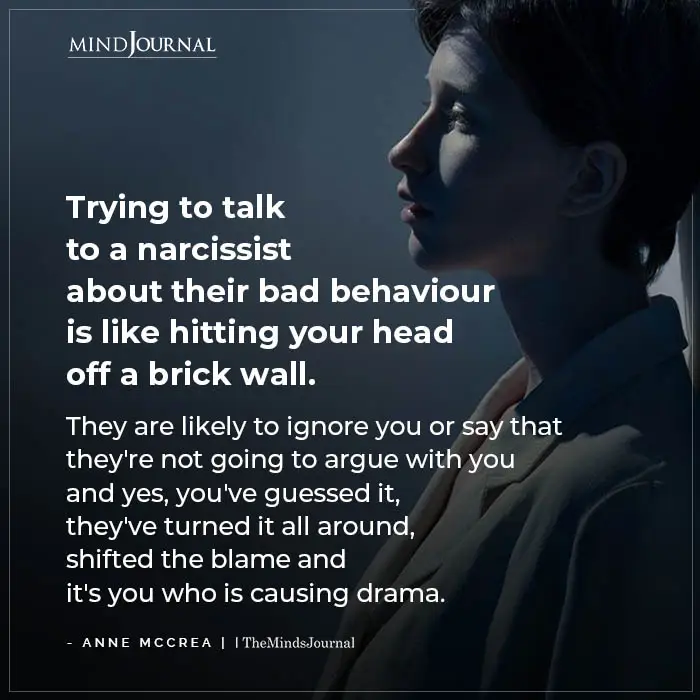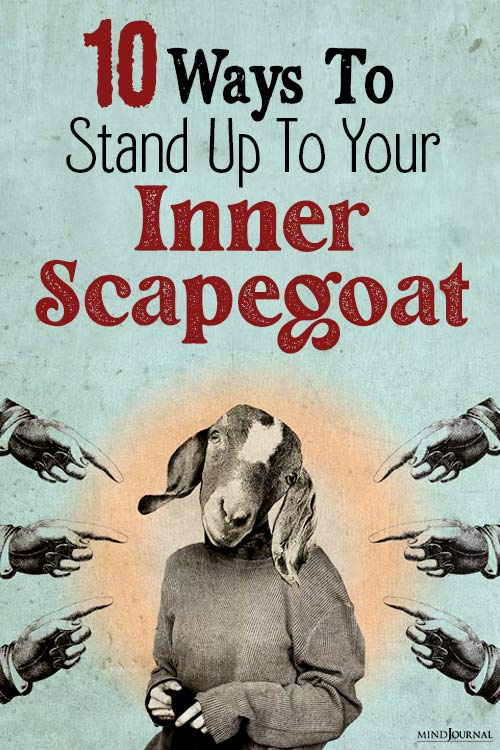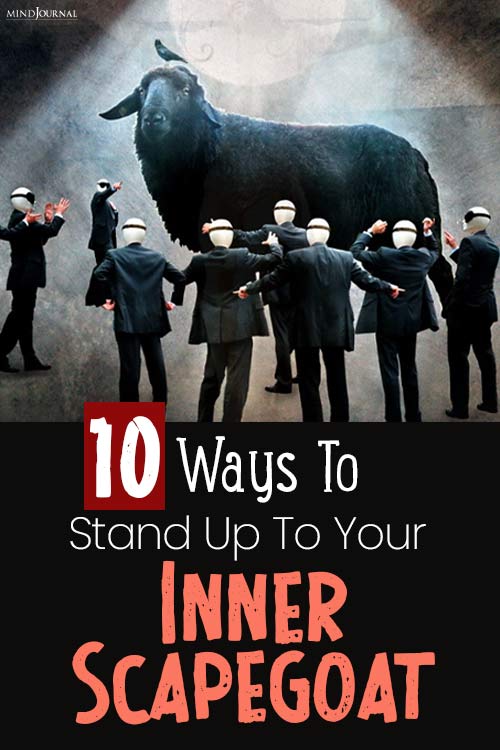When you have always been scapegoated by your toxic parents, you gradually develop an inner scapegoat. But in order to live a happy and peaceful life, it’s important for you to learn some tips when it comes to healing the inner scapegoat. You can’t spend the rest of your life feeling unhappy and not good enough just because someone else thinks so, right?
Have you ever attended a stand-up comedy show where the comic had to deal with a heckler? Occasionally the heckling is deserved, especially if the comic is mean-spirited or – at worst – hateful. More often than not though, heckling is a form of bullying. In other words, cowardly and abusive ‘hit and run’ behavior.
The same can be said about the Inner Critic – aka the Inner Scapegoat. What or who is the Inner Scapegoat? It’s that nagging, scolding, critical voice of self-doubt that undermines your self-worth to the core. Just when you are trying to put your best foot forward, the heckler starts whispering or even shouting in your ear.
If you find yourself thinking things like “Why try, I’ll just blow it”, “Here I go again making a fool of myself”, “Nobody could love me if they really knew who I am”, etc., it’s the Inner Scapegoat that’s pulling the strings.
When people say they are their own worst enemy, it’s usually the Inner Scapegoat they are referring to. The problem is, that many people confuse that negative voice with the truth. The only ‘true’ undeniable thing is that when the Inner Scapegoat is calling the shots, we can’t help but feel destined to fail.
Related: The Masters Of Blame Shifting: Why Narcissists Never Become The Scapegoat
A Brief History Of The Inner Scapegoat
Where does the Inner Scapegoat come from? It doesn’t come out of a vacuum but from the experience of how well you are nurtured. Somewhere along the journey of life, usually starting in childhood, the voice of negative self-criticism began to take hold.
Sadly, this self-doubt tends to be handed down from the grown-up people in children’s lives, especially their parents. The vulnerable emerging identity of these children gets injured, and they come to believe they are defective or inadequate.
Parents may love or want to love their children. But if they are unsure of themselves, preoccupied with their own problems, or ambivalent about parenting, kids sense this and then make the mistake of blaming themselves.
Other parents are more overtly hostile, critical or punitive towards their kids, which is even more damaging to the fledgling sense of self-worth.

Unfortunately, children don’t have the objectivity to know that it’s the big folks – not them – who are having the difficulty. This can become fertile ground for the Inner Scapegoat to take root. Kids come to believe that they are somehow flawed if their parent’s attention or love is not in adequate supply.
If this happens early in life, it’s very difficult for one’s conscious mind to know that this is not the truth.
So the Inner Scapegoat is particularly insidious because it convinces people at a tender age that a negative view of themselves is reality. These negative beliefs get lodged in the unconscious mind, fueling pessimism and loss of self-worth.
It’s essential to psychological well-being that these unconscious negative beliefs be exposed, challenged, and revised into a more accurate and positive view of the self.
Fortunately developing this awareness also marks the turning point toward healing. You can’t change what you aren’t aware of! This understanding is the first step in helping the individual ‘grow up’ from that child’s fear, doubt, and sadness, so they are then free to rediscover their core of integrity that existed before negative beliefs about the self set in.
Related: How Family Scapegoats Become Lifelong Victims
Steps To Outwitting The Inner Scapegoat
- Become aware that too often you feel inadequate, flawed, or defective.
- Working backward, identify negative core beliefs about yourself that stem from feeling inadequate.
- Decide to re-examine your long-held belief that ‘not measuring up’ is the truth about you.
- Look for evidence that – at least some of the time – you are at least ‘adequate’.
- Also, identify exceptions to not being good enough.
- Recognize that this evidence and exceptions are also the truth.
- Decide that if there are parts of you or your life that need improvement, you will figure out ways to work on becoming a better human being, and give yourself credit for doing so.
- Develop an expanded view of the truth, and redefine your beliefs about yourself along more realistic and positive lines – your value, talent, abilities, and inherent worth as a person.
- Actively challenge negative core beliefs when they are triggered, your mood is low, or you are entertaining dark thoughts about yourself.
- Practice Steps 1 through 9 consistently, until one day you wake up and the Inner Scapegoat no longer has a grip on you.
Want to know more about scapegoating syndrome and how to heal the inner scapegoat? Check this video out below!
To request an appointment, or join my email list to receive free resources as I create them, please visit https://GlynisSherwood.com
References:
Scapegoating in Families: Intergenerational patterns of physical and emotional abuse, Dr Vimala Pillari, Philadelphia, PA, US: Brunner/Mazel, 1991 Child Abuse: Pathological Syndrome of Family Interaction, Arthur Green, Richard Gaines and Alice Sandgrund, The American Journal of Psychiatry, 2015
Written By Glynis Sherwood Originally Appeared On Glynis Sherwood










Leave a Reply
You must be logged in to post a comment.